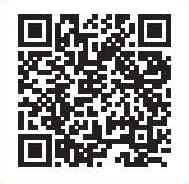Cataract, Cornea, Corneal Therapeutics, IOL, Refractive, Refractive Surgery, Cataract and Refractive Articles
Post-LASIK Tonometer Takes ESCRS Innovators Den Prize
Good ideas lead to solutions to unmet needs.

Howard Larkin
Published: Friday, November 1, 2024
Ophthalmologists are full of ideas to meet unmet eye care needs. But taking an innovation from concept to clinic is a long journey. ESCRS set up the Innovators Den: Eye Care Pioneers programme to help doctors along the way, providing the mentors and business advisors needed as guidance and contacts.
“This is the future of how we meet those unmet needs through innovation,” said Dr Vance Thompson, who chaired this year’s session. “The goal is to speed up the process.”
LASIK tonometer
Each year, dozens of doctors submit ideas through the ESCRS website, from which three finalists are selected. Leading off this year’s finalists was María Iglesias MD, PhD. She presented a new tonometer designed to more accurately measure intraocular pressure (IOP) in patients who have undergone corneal refractive surgery.
Because removing tissue reduces the cornea’s profile and stiffness at the centre, the widely used Goldmann applanation tonometer tends to underestimate IOP in post-LASIK patients—potentially delaying glaucoma diagnosis and treatment. However, if a convex lens is applied to the cornea, depressing it centrally while applying pressure peripherally, its biomechanical responses are similar to pre-LASIK values, Dr Iglesias explained.
Quantifying vision quality
Next up, Harilaos Ginis PhD presented a diagnostic device designed to quantify retinal vision quality in patients with multifocal or other advanced technology intraocular lenses (IOLs). It will help ophthalmologists understand the visual complaints of patients with good visual acuity but poor vision by near-instantaneous measurement of, among other things, contrast, diffractive phenomena, astigmatism, refraction, chromatic and other aberrations, and stray light at the retina, which degrade image quality.
The device should help find solutions by identifying the sources of near, intermediate, and far vision problems, such as astigmatism and dry eye, Dr Ginis said. “This can boost your confidence to use premium lenses because you know what is going on.” Understanding how lenses work may also help improve outcomes, he added.
Improving on eye drops
Last, Jean Garrec described a biopolymer pill that resides under the lower eyelid, steadily releasing topical medications for seven days. The device would address eye drop limitations, including inconsistent concentration, wasted drugs, and poor compliance, without the need for invasive inserts.
Placed similarly to a contact lens, the weekly pill has shown efficacy in phase 1 glaucoma clinical trials, he said. It is also under development for macular oedema and could be used for other conditions, including dry eye, and as a gene therapy.
Considering factors including the size of the opportunity, feasibility, and the people behind the products, the judges—Professor Filomena Ribeiro, ESCRS president, Diana Saraceni, founder of Panakès Partners venture capital, and Dr Shahzad Malik, general partner at Advent Life Sciences venture capital—found Dr Iglesias’ presentation most compelling.
“It’s difficult to make this decision,” Prof Ribeiro said. “The ideas are all brilliant.”
This prize was presented at iNovation Day at the 2024 ESCRS Congress in Barcelona.

María Iglesias MD, PhD, FEBO is an ophthalmologist and inventor with the Barraquer Ophthalmology Centre, Barcelona, Spain. mariaiglesiasalvarez@gmail.com
Harilaos Ginis PhD is senior scientist and co-founder of Diestia Systems, Athens, Greece. dimetirios@diestia.com
Jean Garrec PharmD is founder and CEO of Biophta, Paris, France. contact@biophta.com